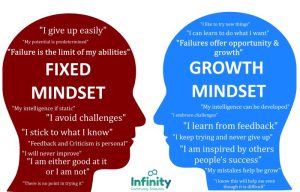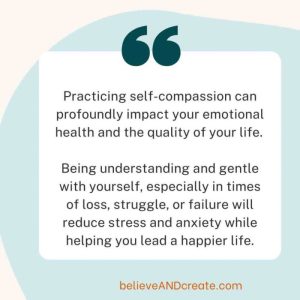Finding a Therapist Near Me A Comprehensive Guide

Finding a therapist near me is often the first step on a journey towards improved mental well-being. This search reflects a crucial moment of self-awareness and a proactive approach to addressing emotional or mental health concerns. Understanding the nuances of this search—from identifying the right type of therapist to navigating insurance and location—is key to finding the best fit.
This guide explores the process, offering practical advice and resources to support you in your search.
Many individuals seek therapy for various reasons, including stress management, anxiety relief, depression support, or overcoming addiction. The type of therapist needed will vary depending on individual needs and preferences. This guide helps navigate the complexities of choosing a therapist, considering factors such as location, insurance coverage, therapeutic approaches, and therapist qualifications. Ultimately, the goal is to empower individuals to take control of their mental health journey.
Understanding the Search “Finding a Therapist Near Me”

The search query “finding a therapist near me” reveals a user’s immediate need for mental health support and their desire for convenient access to care. This indicates a high level of urgency and a preference for in-person therapy, prioritizing geographical proximity. Understanding the nuances behind this search is crucial for effectively connecting individuals with appropriate therapists.The motivations behind this search are multifaceted and deeply personal.
Individuals may be experiencing a range of emotional, psychological, or behavioral challenges that necessitate professional intervention. These challenges could be acute, such as a recent traumatic event, or chronic, such as anxiety or depression. Others might be seeking preventative care, aiming for proactive mental wellness. The search reflects a commitment to addressing these concerns and a willingness to seek professional guidance.
Types of Therapists Sought
The type of therapist someone seeks depends largely on their specific needs and preferences. Someone searching for “finding a therapist near me” might be looking for any of a variety of mental health professionals. For example, they might need a psychiatrist for medication management, a psychologist for therapy focusing on cognitive or behavioral approaches, a clinical social worker for addressing social and environmental factors impacting mental health, or a licensed professional counselor for general counseling and support.
The individual’s specific needs and the type of therapy they prefer will dictate their search criteria beyond just location.
User Persona: Sarah
Sarah is a 32-year-old marketing professional experiencing increased anxiety and difficulty sleeping. Recent work pressures and a challenging personal relationship have left her feeling overwhelmed and emotionally drained. She recognizes the need for professional help but wants to find a therapist conveniently located near her home or workplace to minimize disruption to her already busy schedule. She prefers a therapist who utilizes a cognitive behavioral therapy (CBT) approach, having heard positive feedback from friends.
She values a therapist who is empathetic, understanding, and creates a safe and comfortable therapeutic environment. Her search for “finding a therapist near me” reflects her desire for accessible and effective mental healthcare tailored to her specific needs and preferences. She prioritizes convenience, but also seeks a strong therapeutic rapport with a qualified professional.
Locating Therapists

Finding the right therapist can feel overwhelming, but utilizing the right resources and strategies can significantly streamline the process. This section will guide you through various methods and considerations to help you locate a therapist who meets your needs. We’ll explore different online directories, offer tips for evaluating profiles, and emphasize the importance of practical considerations like insurance and location.
Online Directories for Finding Therapists: A Comparison
Several online platforms specialize in connecting individuals with mental health professionals. Each directory has its own strengths and weaknesses. For example, Psychology Today’s directory is expansive, offering detailed profiles and filtering options, but it may not include all therapists in a given area. GoodTherapy.org provides a similar comprehensive search, but focuses more on therapist specializations. Zocdoc, while broader in its scope including medical professionals, offers convenient appointment scheduling but may have less detailed therapist profiles.
Consider exploring multiple directories to broaden your search. It’s crucial to remember that these are simply starting points; further investigation is necessary before selecting a therapist.
Evaluating Therapist Profiles and Qualifications
Thoroughly reviewing therapist profiles is essential. Pay close attention to their credentials (licensing, certifications, degrees), areas of expertise, therapeutic approaches (e.g., Cognitive Behavioral Therapy, psychodynamic therapy), and experience. Look for therapists who explicitly state their experience working with clients facing similar challenges to your own. Many directories allow you to filter by these criteria. Reading client reviews (while acknowledging potential biases) can provide additional insights into a therapist’s communication style and approach.
Remember that a therapist’s qualifications and experience are only part of the equation; a good fit is also crucial.
Insurance Coverage and Payment Options
Before committing to a therapist, verify their insurance coverage. Contact your insurance provider to confirm which therapists are in-network and what your co-pay will be. Understanding your out-of-pocket expenses is vital for budgeting. If you don’t have insurance or your preferred therapist is out-of-network, inquire about their payment options, including sliding scale fees or payment plans. Transparency regarding fees is crucial.
Some therapists offer free consultations to discuss fees and determine if they are a good fit for you before the first session.
Factors to Consider When Choosing a Therapist’s Location, Finding a therapist near me
The location of your therapist plays a significant role in your overall experience. Consider factors such as proximity to your home or work, accessibility by public transport or personal vehicle, and the overall comfort and convenience of the setting. A therapist’s office located in a familiar and safe area can contribute to a more comfortable and accessible therapeutic experience.
For those with mobility limitations, accessibility features within the office should be considered. Online therapy is another option that removes geographical limitations. Weigh the pros and cons of in-person versus telehealth sessions to determine what best suits your needs and preferences.
Finding the right therapist is a personal and significant step in prioritizing mental well-being. This guide has provided a framework for navigating the search, from understanding your needs to utilizing available resources and considering various factors influencing your choice. Remember, seeking professional help is a sign of strength, and taking proactive steps towards better mental health is an investment in your overall well-being.
We encourage you to utilize the resources and advice provided to embark on this important journey with confidence.
FAQ Compilation
What is the difference between a psychologist, psychiatrist, and therapist?
Psychologists typically have a doctoral degree and provide therapy. Psychiatrists are medical doctors who can prescribe medication. Therapists is a broader term encompassing various mental health professionals.
How much does therapy cost?
Cost varies greatly depending on location, therapist, insurance coverage, and type of therapy. Many therapists offer sliding scale fees.
How do I know if a therapist is a good fit?
Consider factors like their experience, approach, personality, and whether you feel comfortable and understood during the initial consultation.
What if I can’t afford therapy?
Many community mental health centers offer low-cost or free services. Some therapists also offer sliding-scale fees based on income.
Is online therapy as effective as in-person therapy?
Studies show online therapy can be just as effective as in-person therapy for many individuals. Effectiveness depends on factors such as the individual’s comfort level and the therapist’s expertise in telehealth.






